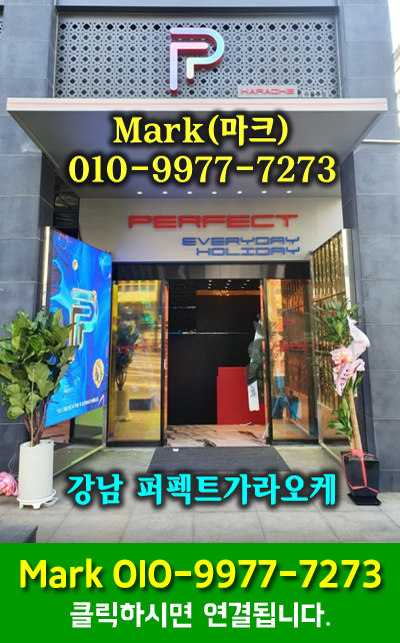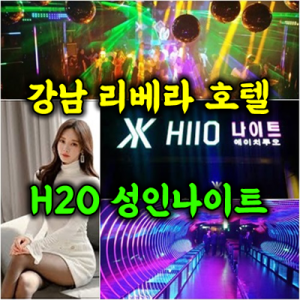Do You Really Know How To ADHD Medication List On Linkedin?
컨텐츠 정보
- 16 조회
-
목록
본문
Here's an entire ADHD medication list that includes stimulants, non-stimulants and specific considerations. This article will go over the various ADHD medications as well as their adverse effects, precautions and interactions with other drugs. A list of the most commonly prescribed medications is listed below. To know more about the different types of ADHD medications, check out the official website of the American Academy of Pediatrics. It is also beneficial to know how to use the ADHD medication list and what you should think about prior to taking a medication.
Stimulants
There are several types of ADHD medications, and the most commonly prescribed is a stimulant. These drugs have the highest success rate however, they also are not without risk, including adverse effects and the possibility of abuse. Non-stimulants slow down the treatment of ADHD symptoms. These drugs help to improve overall concentration and control of impulses However, they require regular use and may take several weeks to show results.
The misuse of prescription stimulants may result in substance abuse disorder and, in some cases addiction. Tolerance can be a result of long-term use of stimulants. This means that one has to use higher doses of stimulants and more often. These medications can lead to dependence on substances, which can be dangerous and even fatal. If you suspect your child may be using stimulants in a manner that isn't appropriate You should discuss these concerns with your health professional.
Non-stimulants include atypical antidepressants as well as certain blood pressure medications and Strattera. These drugs are used to treat ADHD in cases where stimulants have failed or cause undesirable side effects. These stimulants can increase anxiety, so your child should not take them if it is associated with anxiety. If you're searching for a substitute medication for ADHD There are plenty of options. One of the most popular non-stimulants is Intuniv XR. It assists children aged 6-12 with a wide range of symptoms like hyperactivity, impulsivity, or hyperactivity.
Patients who have a history or dependence on stimulants should not be given stimulants as they are less efficient. The dosage of a stimulant is determined by the individual's age, weight, and sensitivity to the medicine. In addition, extended-release stimulants should be taken with meals. For children who struggle with swallowing, extended-release capsules with beads are available. Non-stimulants may be used if stimulants aren't effective or cause adverse side effects.
Antidepressants
While originally designed to treat other ailments, and are now proved effective for ADHD, antidepressants are also effective in treating ADHD. They may improve mood and concentration and be beneficial for children suffering from ADHD. There are a variety of antidepressants available on the market, including atomoxetine (Strattera) and wellbutrin ER and guanfacides. These drugs require patience when beginning treatment. Certain medicines can trigger negative side effects that aren't pleasant, and others may not work for every child.
Most antidepressants relieve the symptoms of anxiety and depression but they can also be effective for people suffering from bulimia and chronic pain. Although antidepressants aren't suitable for everyone, they're most effective when combined with talking therapy and family support. It can take several weeks before antidepressants begin working, but early indicators include better sleep, adhd medication methylphenidate appetite, and energy. If you're ready to begin taking an antidepressant, speak with your doctor about adverse effects and whether they're worth it.
The FDA has approved long-acting clonidine and guanfacine to treat ADHD. They can be used to lower blood pressure, increase patience as well as decrease impulsivity. They can also improve tasks-oriented behavior, ADHD medication list as well as treat high blood pressure. They can be combined with stimulants like amphetamines and methylphenidate. While they are not recommended for adhd medication ritalin however they may help enhance the mental functioning and behavior.
Someone who has been prescribed a psychostimulant to treat ADHD must be aware of any side effects. You should learn how often you should take the medication, when it should be taken, and what substances to stay clear of. It is difficult to determine the appropriate dosage for each individual. The most effective dose will differ from one individual to the next. Start with the lowest dose , and gradually increase as time passes.
Behavioral therapy
A successful treatment plan should include constant monitoring of the effects of ADHD medications and other behavioral treatment for ADHD. Changes in the medication are also recommended in the event of a need. These suggestions are from the American Academy of Pediatrics. ADHD is a condition that affects the ability of children to be still, pay attention, and interact with peers and family members. Children with ADHD often exhibit disruptive behavior and require behavioral therapy to manage their symptoms. This therapy should be started as soon as the diagnosis is made.
Finding the right medication requires close collaboration with your pediatrician. In the course of treatment the doctor will ask you to fill in behavior rating scales and ask teachers to monitor your child's goals. They will also look for vital signs and monitor for any possible side effects. Certain conditions can hinder the effectiveness of stimulants, such as congenital heart disease. ADHD is also a common condition in children with tic disorders.
Strattera as well as atypical antidepressants and certain blood pressure medications are all non-stimulant medications. These drugs can be combined with behavioral therapy for ADHD. Behavioral education is the preferred treatment option for children who are less than six years old. A classroom intervention in the area of behavioral education can be beneficial to adolescents and children as young as 12 years older. These medications are not appropriate for children younger than 3 years old.
Behavioral therapy for ADHD can help your child develop better social skills and more appropriate habits. ADHD therapies teach children new skills to help them cope and organize stress, increase motivation and drive to reach their goals. There are several licensed therapists who are part of the BetterHelp network. BetterHelp may receive commissions if you decide to see an therapist through their service. You can find a licensed therapist by checking BetterHelp's website, or by calling an area health care provider.
Long-acting formulations
There are numerous variations between short-acting adhd treatment without medication medications and long-acting ones. Short-acting formulas can be used for dosage titration, and can worsen co-morbidities. Long-acting formulas, on the contrary, are suggested for children and adolescents. Some of the primary motives for using long-acting products include compliance and cost-benefit analysis.
These ADHD drugs are stimulants, which alter brain chemical like dopamine and norepinephrine. The effects of these stimulants may vary from one person to the next. Because of this, your therapist will collaborate with you closely to decide which medication is most suitable for your individual needs. Long-acting medicines, like, reduce the chance of dependency and abuse. These medicines are also more effective for children and adults.
Long-acting ADHD medication is more effective and simpler to adjust dosages. Long-acting formulas allow patients to follow the prescribed dosage for a longer period of time. The longer-acting formulations have ability to combat the most severe symptoms of ADHD. They may be more efficient than immediate-acting formulations, however, it is crucial to take into account your personal needs and preferences when choosing the most effective ADHD medication.
Pediatricians are setting the standard by using long-acting ADHD medication. Children and adults are often prescribed long-acting medications. Long-acting medicines account for nearly half of ADHD prescriptions during childhood. In pediatric patients these medications are approved for use by doctors. However, natural adhd medication long-acting medications for ADHD are more common in treatment for children than for adults.
Side effects
While some children don't suffer from side effects, others may experience minor, transient ones. The effects of ADHD medication can vary widely based on the child's response to the medication and the individual. Consult your physician if you are experiencing adverse side effects and then try another medication. Supplements may be necessary to keep weight loss from happening to some children. However, most children experience minimal side effects. Here are the most frequent side effects of ADHD medication.
If you're taking ADHD medication for your child, be aware of the negative effects and complications. The best way to deal with these issues is to take it one day at each day. Depending on the severity of side effects, you might be required to take the medicine for a few weeks or months. You should also be aware of any changes in your child's mood or behavior when taking the medication. Talk to your child's doctor regarding the possible side effects of the medication. Also, talk about the medical history of your child. You can also learn about the symptoms of these side effects and report them to the doctor.
Sometimes, ADHD medication can have a rebound effect. This happens when the drug is beginning to wear down quickly and stops the brain's receptors too quickly. You can lower the dose by about half an hour before the effects of rebound start. In certain instances, rebound effects may indicate that you should adjust the dosage of the medication, or perhaps consider switching to a different medication. It is also recommended to discuss the possible side effects of ADHD medication with your physician.
ADHD medication can cause side effects in some children, regardless the effectiveness of the medication. Certain children who were treated with ADHD medication appear to be adversely affected by the experience, and the long-term effects of the treatment made it hard to break the addiction. Furthermore, many children who were treated with drugs stayed on the drugs for long periods of time and this made it difficult for doctors to get rid of their compulsions. The Drake Institute of Neurophysical Medicine, (DINM), aims to reduce ADHD side effects through using a combination of psychology, neuroscience and medicine. These methods have been shown to be effective in clinical trials, with more than 80 percent success.
Stimulants
There are several types of ADHD medications, and the most commonly prescribed is a stimulant. These drugs have the highest success rate however, they also are not without risk, including adverse effects and the possibility of abuse. Non-stimulants slow down the treatment of ADHD symptoms. These drugs help to improve overall concentration and control of impulses However, they require regular use and may take several weeks to show results.
The misuse of prescription stimulants may result in substance abuse disorder and, in some cases addiction. Tolerance can be a result of long-term use of stimulants. This means that one has to use higher doses of stimulants and more often. These medications can lead to dependence on substances, which can be dangerous and even fatal. If you suspect your child may be using stimulants in a manner that isn't appropriate You should discuss these concerns with your health professional.
Non-stimulants include atypical antidepressants as well as certain blood pressure medications and Strattera. These drugs are used to treat ADHD in cases where stimulants have failed or cause undesirable side effects. These stimulants can increase anxiety, so your child should not take them if it is associated with anxiety. If you're searching for a substitute medication for ADHD There are plenty of options. One of the most popular non-stimulants is Intuniv XR. It assists children aged 6-12 with a wide range of symptoms like hyperactivity, impulsivity, or hyperactivity.
Patients who have a history or dependence on stimulants should not be given stimulants as they are less efficient. The dosage of a stimulant is determined by the individual's age, weight, and sensitivity to the medicine. In addition, extended-release stimulants should be taken with meals. For children who struggle with swallowing, extended-release capsules with beads are available. Non-stimulants may be used if stimulants aren't effective or cause adverse side effects.
Antidepressants
While originally designed to treat other ailments, and are now proved effective for ADHD, antidepressants are also effective in treating ADHD. They may improve mood and concentration and be beneficial for children suffering from ADHD. There are a variety of antidepressants available on the market, including atomoxetine (Strattera) and wellbutrin ER and guanfacides. These drugs require patience when beginning treatment. Certain medicines can trigger negative side effects that aren't pleasant, and others may not work for every child.
Most antidepressants relieve the symptoms of anxiety and depression but they can also be effective for people suffering from bulimia and chronic pain. Although antidepressants aren't suitable for everyone, they're most effective when combined with talking therapy and family support. It can take several weeks before antidepressants begin working, but early indicators include better sleep, adhd medication methylphenidate appetite, and energy. If you're ready to begin taking an antidepressant, speak with your doctor about adverse effects and whether they're worth it.
The FDA has approved long-acting clonidine and guanfacine to treat ADHD. They can be used to lower blood pressure, increase patience as well as decrease impulsivity. They can also improve tasks-oriented behavior, ADHD medication list as well as treat high blood pressure. They can be combined with stimulants like amphetamines and methylphenidate. While they are not recommended for adhd medication ritalin however they may help enhance the mental functioning and behavior.
Someone who has been prescribed a psychostimulant to treat ADHD must be aware of any side effects. You should learn how often you should take the medication, when it should be taken, and what substances to stay clear of. It is difficult to determine the appropriate dosage for each individual. The most effective dose will differ from one individual to the next. Start with the lowest dose , and gradually increase as time passes.
Behavioral therapy
A successful treatment plan should include constant monitoring of the effects of ADHD medications and other behavioral treatment for ADHD. Changes in the medication are also recommended in the event of a need. These suggestions are from the American Academy of Pediatrics. ADHD is a condition that affects the ability of children to be still, pay attention, and interact with peers and family members. Children with ADHD often exhibit disruptive behavior and require behavioral therapy to manage their symptoms. This therapy should be started as soon as the diagnosis is made.
Finding the right medication requires close collaboration with your pediatrician. In the course of treatment the doctor will ask you to fill in behavior rating scales and ask teachers to monitor your child's goals. They will also look for vital signs and monitor for any possible side effects. Certain conditions can hinder the effectiveness of stimulants, such as congenital heart disease. ADHD is also a common condition in children with tic disorders.
Strattera as well as atypical antidepressants and certain blood pressure medications are all non-stimulant medications. These drugs can be combined with behavioral therapy for ADHD. Behavioral education is the preferred treatment option for children who are less than six years old. A classroom intervention in the area of behavioral education can be beneficial to adolescents and children as young as 12 years older. These medications are not appropriate for children younger than 3 years old.
Behavioral therapy for ADHD can help your child develop better social skills and more appropriate habits. ADHD therapies teach children new skills to help them cope and organize stress, increase motivation and drive to reach their goals. There are several licensed therapists who are part of the BetterHelp network. BetterHelp may receive commissions if you decide to see an therapist through their service. You can find a licensed therapist by checking BetterHelp's website, or by calling an area health care provider.
Long-acting formulations
There are numerous variations between short-acting adhd treatment without medication medications and long-acting ones. Short-acting formulas can be used for dosage titration, and can worsen co-morbidities. Long-acting formulas, on the contrary, are suggested for children and adolescents. Some of the primary motives for using long-acting products include compliance and cost-benefit analysis.
These ADHD drugs are stimulants, which alter brain chemical like dopamine and norepinephrine. The effects of these stimulants may vary from one person to the next. Because of this, your therapist will collaborate with you closely to decide which medication is most suitable for your individual needs. Long-acting medicines, like, reduce the chance of dependency and abuse. These medicines are also more effective for children and adults.
Long-acting ADHD medication is more effective and simpler to adjust dosages. Long-acting formulas allow patients to follow the prescribed dosage for a longer period of time. The longer-acting formulations have ability to combat the most severe symptoms of ADHD. They may be more efficient than immediate-acting formulations, however, it is crucial to take into account your personal needs and preferences when choosing the most effective ADHD medication.
Pediatricians are setting the standard by using long-acting ADHD medication. Children and adults are often prescribed long-acting medications. Long-acting medicines account for nearly half of ADHD prescriptions during childhood. In pediatric patients these medications are approved for use by doctors. However, natural adhd medication long-acting medications for ADHD are more common in treatment for children than for adults.
Side effects
While some children don't suffer from side effects, others may experience minor, transient ones. The effects of ADHD medication can vary widely based on the child's response to the medication and the individual. Consult your physician if you are experiencing adverse side effects and then try another medication. Supplements may be necessary to keep weight loss from happening to some children. However, most children experience minimal side effects. Here are the most frequent side effects of ADHD medication.
If you're taking ADHD medication for your child, be aware of the negative effects and complications. The best way to deal with these issues is to take it one day at each day. Depending on the severity of side effects, you might be required to take the medicine for a few weeks or months. You should also be aware of any changes in your child's mood or behavior when taking the medication. Talk to your child's doctor regarding the possible side effects of the medication. Also, talk about the medical history of your child. You can also learn about the symptoms of these side effects and report them to the doctor.
Sometimes, ADHD medication can have a rebound effect. This happens when the drug is beginning to wear down quickly and stops the brain's receptors too quickly. You can lower the dose by about half an hour before the effects of rebound start. In certain instances, rebound effects may indicate that you should adjust the dosage of the medication, or perhaps consider switching to a different medication. It is also recommended to discuss the possible side effects of ADHD medication with your physician.
ADHD medication can cause side effects in some children, regardless the effectiveness of the medication. Certain children who were treated with ADHD medication appear to be adversely affected by the experience, and the long-term effects of the treatment made it hard to break the addiction. Furthermore, many children who were treated with drugs stayed on the drugs for long periods of time and this made it difficult for doctors to get rid of their compulsions. The Drake Institute of Neurophysical Medicine, (DINM), aims to reduce ADHD side effects through using a combination of psychology, neuroscience and medicine. These methods have been shown to be effective in clinical trials, with more than 80 percent success.
관련자료
-
이전
-
다음
댓글 0
등록된 댓글이 없습니다.













